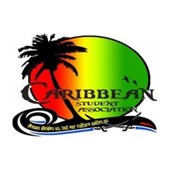
This section of the exhibit focuses on different student-based activities. These are clubs or organizations that were created on campus ranging mostly from the 1960's to the 1990's. It is evident that student organizations have played an active role in the last sixty-years in engaging in efforts to promote diversity and inclusion at Cortland. Through the decades, these different organizations were often established to fill a void in inclusion or advocate for equality.
The Black Student Union (BSU) was established in 1968. It was originally associated with Uhuru, which in Swahili means "freedom." The BSU was formed during a period when African-American enrollment was increasing at Cortland. This is also the same time period when the Black Studies department was formed. The first BSU created in the United States was San Francisco State University in 1966.
In 1993 four faculty members created the Kente Commencement Celebration at the West Chester University of Pennsylvania. The Kente Celebration at Cortland began in the late 1990’s.
"The Kente cloth is a traditional African cloth – the colors and design hold a specific meaning. It is the most popular and best known of all African textiles. Originally, royalty exclusively wore kente but since Ghana’s independence from Britain in 1957 kente has become a symbol of national pride. Ordinary citizens wear it for special celebrations. The kente cloth has also become an important symbol for African Americans, people of color in general, and their allies to highlight their achievements and connection to the first learning centers of the world in Africa," (Kente Overview, Multicultural Life and Diversity Office, SUNY Cortland).
The Student Voice Office opened in 1987 and helped provide a space for both African-American and Latinx student-based organizations. The intention was to become an "informal mechanism to break the social barriers of ethnic culture interest and mistrust and give students a chance to feel that the institution cared about them and they have a place," (Sosa, Press, March 31, 1989). The creation of the office was made possible largely through the efforts of Dr. John Sosa, sociology-anthropology, and Charles Warren, former provost. Today, it is home to a number of the diversity and inclusion-based clubs or organizations.
The Latin Student Union was established in the early 1970's. Earliest mention of the student organization appears in a student newspaper from 1973.
La Familia Latina club was established in the early 1990's. The main goal is to educate students on Latin culture. This includes education on the culture as a whole, as well as their five core values which are Respecto (Respect), Aprecio (Appreciation), Humildad (Humbleness), Confianza (Trust) y Unidad (Unity).
The Asian/Pacific Student Union was established in the fall of 1994 with the purpose of building an understanding of the differences and similarities within the Asian Pacific culture. Today, the student organization is referred to as the Asian American Pacific Islander Student Union (AAPISU) and serves as a "platform to exchange different ideas and experiences and a support network within the Asian American community through cultural, professional development, and community-building events" (AAPISU).
The Caribbean Student Association started in the late 1990's. This association strives to promote cultural awareness as well as political awareness of the Caribbean and its residents or descendants. The Club has a motto which is, "Oceans divides us, but our culture unites us," (quote and logo are from the Caribbean Student Association webpage).

The Woman of Color (W.O.C.) club was established in 1994. The WOC encourages discussion on breaking down stereotypes while building sisterhood.
The Speech and Hearing Club was part of a national chapter of the National Student Speech Language Hearing Association. An annual conference was put on by students from Cortland and Ithaca working in speech pathology and audiology. This began in 1996.
The Gay and Lesbian Alliance (GALA) is student-based organization established in 1988 create to support educational programming. Today, the Pride Club exists on campus. However, prior to this, the Gay and Lesbian Alliance committee was formed to address policy concerns and raise awareness. This is now referred to as Sexual Orientation, Gender Identity Expression committee (SOGIE).
The Gospel Choir was founded in 1985 through the efforts of Samuel Kelley. In 1992 the choir performed in New York City during the SUNY Performing Arts Series. Additionally, the choir has performed during the Black Gospel Music Festival and was even featured on CBS's Good Morning News in 1993. It is still a valuable artistic and academic outlet on campus to this day.
The Cortland Jewish Fellowship was first recognized in the 1950's as part of the Interfaith Council on Campus. In the mid 1970's a proposal for a Jewish Studies program was created. Alongside the academic program, the emergence of the Jewish Cultural Club was established, which was also known as the Jewish Student Alliance. Today, the club is known as "Hillel.”
“POWER’s purpose is the offer support for womyn who are empowering themselves in the fight for equality; economically, politically, and socially. The main objectives are to create awareness of various womyns issues, especially ones concerning sexual harassment and rape, which often occur on college campuses.
Throughout their first year, POWER has strived to educate and inform by inviting various speakers to campus, holding a sexual harassment workshop, and successfully, initiating a plan to get better lighting on campus.
With many of the founding sisters graduating this semester, the group hopes to have a strong enough foundation for future college students and community members to continue the enlightenment that not only concerns womyn, but men and society as well.”